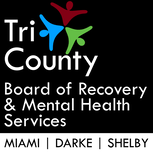
Effectively coping with depression requires a multi-faceted approach that encompasses professional treatment, a healthy lifestyle, and a commitment to learning. You can learn to transform negative habits into positive coping mechanisms to benefit both body and mind.
1. Avoid Drugs and Alcohol
Many individuals who abuse drugs and alcohol often have an underlying mental illness such as depression. Some turn to drugs or alcohol to self-medicate with the intent to escape, albeit temporarily, negative thoughts and feelings. The effects are temporary, however, and can often lead to continuous use, dependence and addiction. Over time, the abuse of alcohol and drugs may worsen the underlying illness.
Drugs or alcohol won’t make your depression better, but healthy living coupled with professional treatment can. It is possible you may be part of a high-risk population and may be more tempted to turn to alcohol or substances to cope. Being mindful of your habits is so important. If possible, talk with your therapist or healthcare provider about steps you can take to avoid heading down the path to addiction.
2. Remain Socially Engaged
It’s common for people suffering from depression to isolate themselves from friends and family. You may feel as though your friends don’t enjoy being around you, or that your family members are judging you. In many cases, these perceptions are just that: perceptions, which have been distorted by your illness.
Depression can change how we view ourselves, so it is important to surround yourself with a support system consisting of friends, relatives, and fellow support group members you can trust to reflect your moods and behaviors. Resist the urge to turn down social invitations. If friends are inviting you to join them for dinner, they’re doing so because they enjoy your company and want to spend time with you. Say yes to the opportunity! Spending time with friends can leave you feeling energized and happier, despite your initial desire to stay home (remember - that's your illness talking!).
3. Get Your Heart Rate Up with Exercise
When you feel like curling up in bed with the covers over your head, exercising is probably the last thing on your mind. Even though it may be difficult, commit to exercising for just five minutes. Tell yourself that if you’re still not into it after five minutes, you give yourself permission to stop. Another good tip is to exercise during the commercials while watching television. It's amazing how just a few minutes of activity every hour can help.
You might find after five minutes of aerobic exercise or vigorous walking that you’re pumped up enough to continue. Exercise can boost your mood for hours due to the endorphins it releases. Regular exercise every day or a few times each week can have positive, long-term impacts on depression.
4. Practice Positive Self-Talk
A symptom of depression is that you may have constant negative thoughts about yourself. These are sometimes reinforced by negativity you may hear (or perceive) from the people around you. But with conscious effort, many people are able to turn those negative thoughts into positive action and confidence-boosting self-talk.
Negative thought patterns can be reversed when you work with a therapist to develop strategies for identifying your self-doubts. Accepting compliments, recognizing the good things about yourself, or just talking openly with close ones are some things that can help. Learning to take in the positive that contrasts the negative can help to transform your outlook.
Overcoming depression is a long-term effort requiring lifestyle changes and a commitment to your treatment regimen. Through recognizing warning signs and taking actions designed to beat your symptoms, you can regain control over your illness – and your life.
Steve Johnson is dedicated to promoting health and wellness in all aspects of life. Studying in the medical field has shown him how important it is for reputable health-related facts, figures, tips, and other guidance to be readily available to the public. He created PublicHealthLibrary.org with a fellow student to act as a resource for people’s overall health inquiries and as an accurate and extensive source of health information. When he isn’t hard at work in his studies, Steve enjoys playing tennis and listening to his vintage record collection.
Image via Pixabay by snicky2290
 RSS Feed
RSS Feed
